Birthday of Stewart Reuben (14-iii-1939)
Here is his Wikipedia entry
His personal catchphrase is “If only I had been consulted eariler”
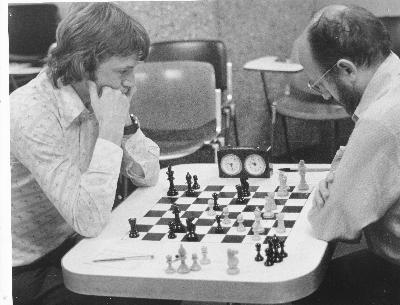
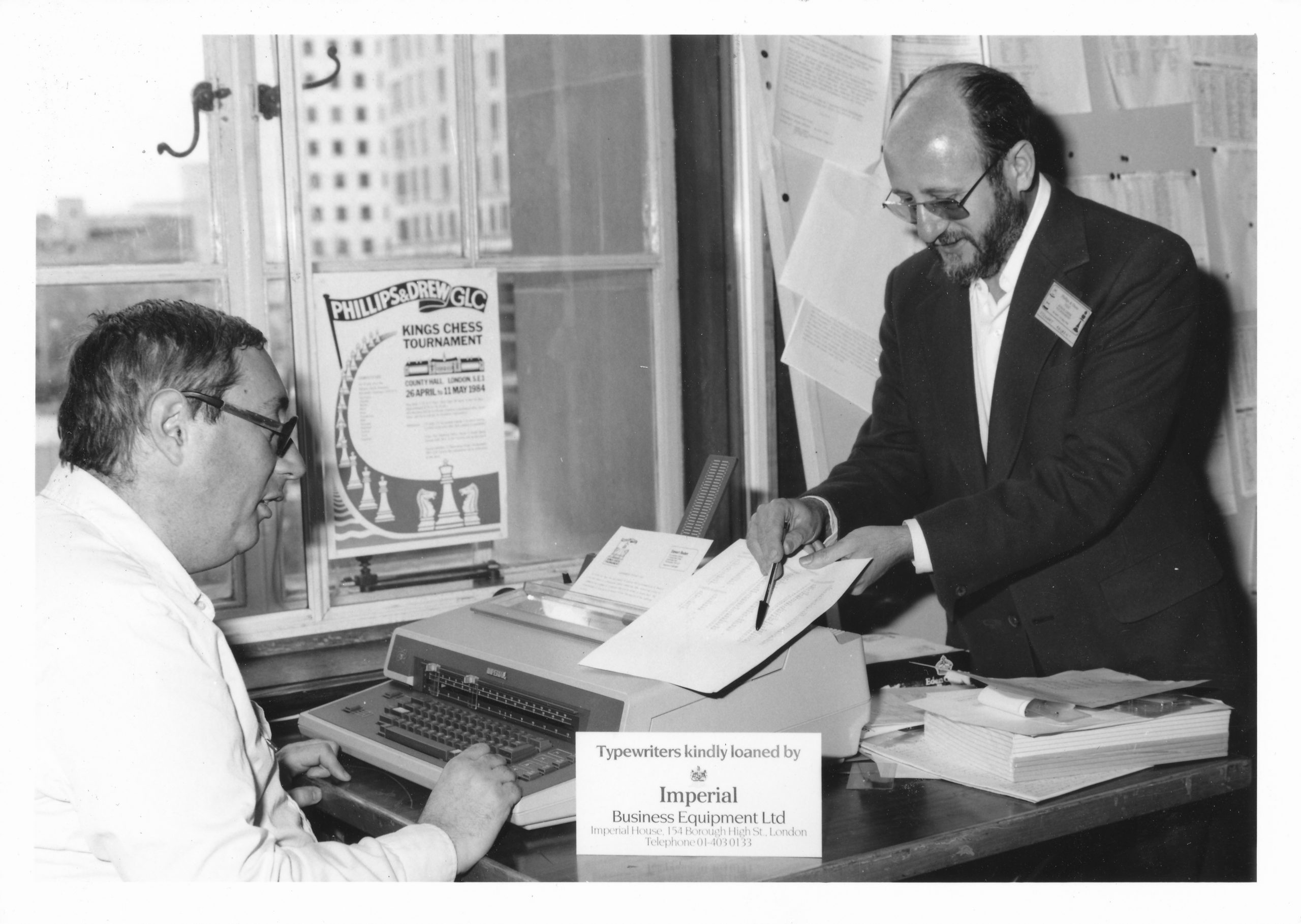
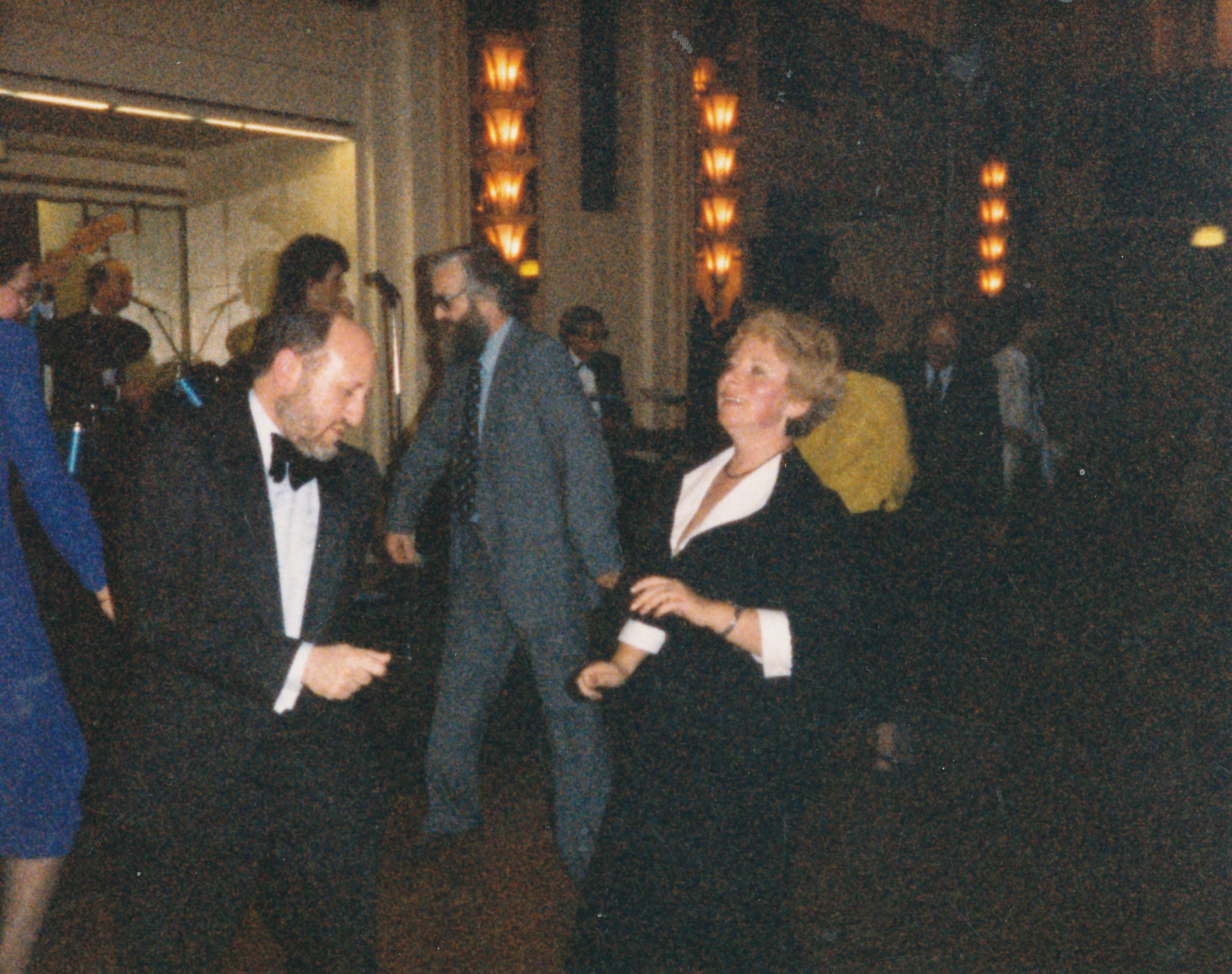
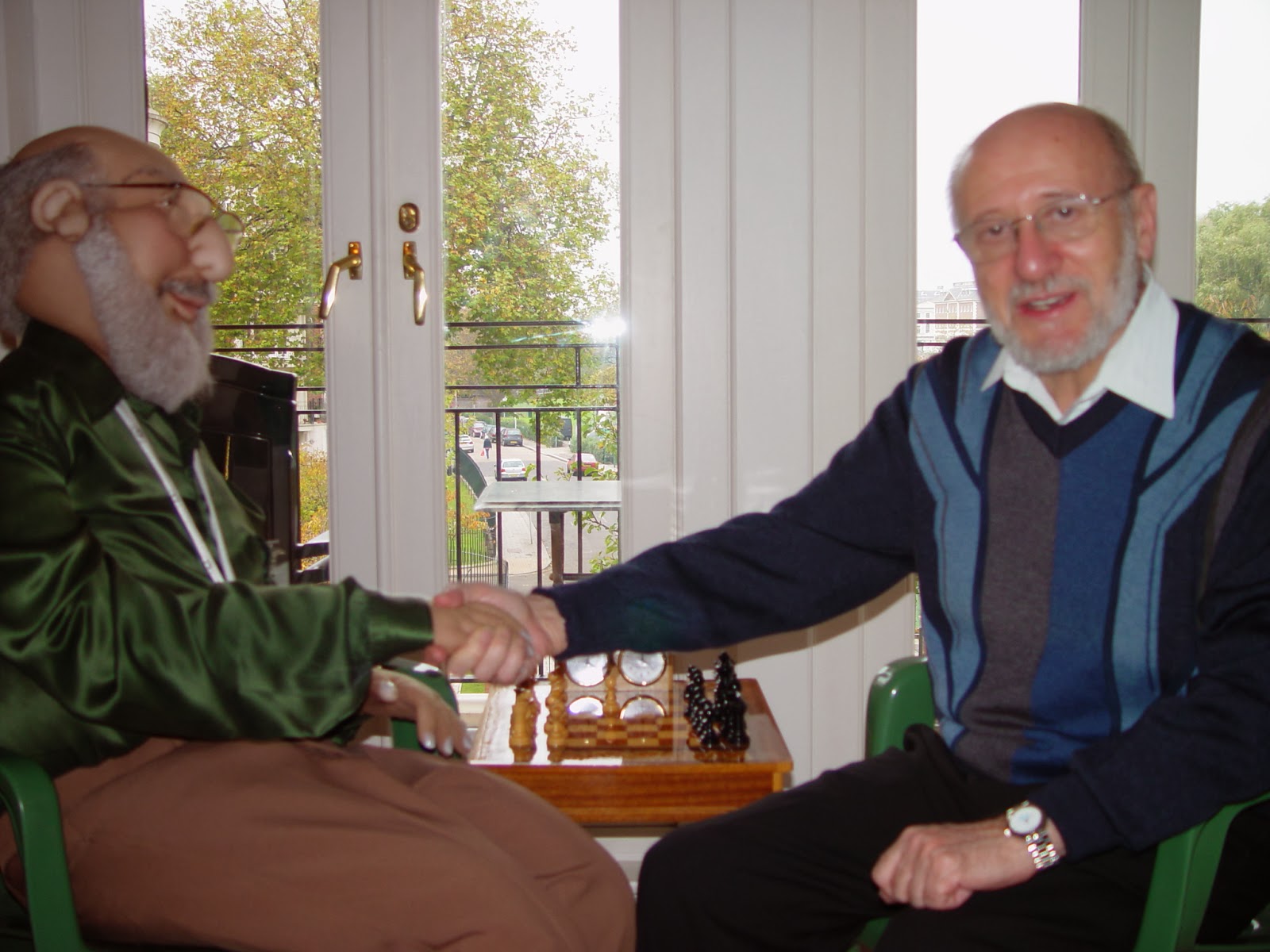
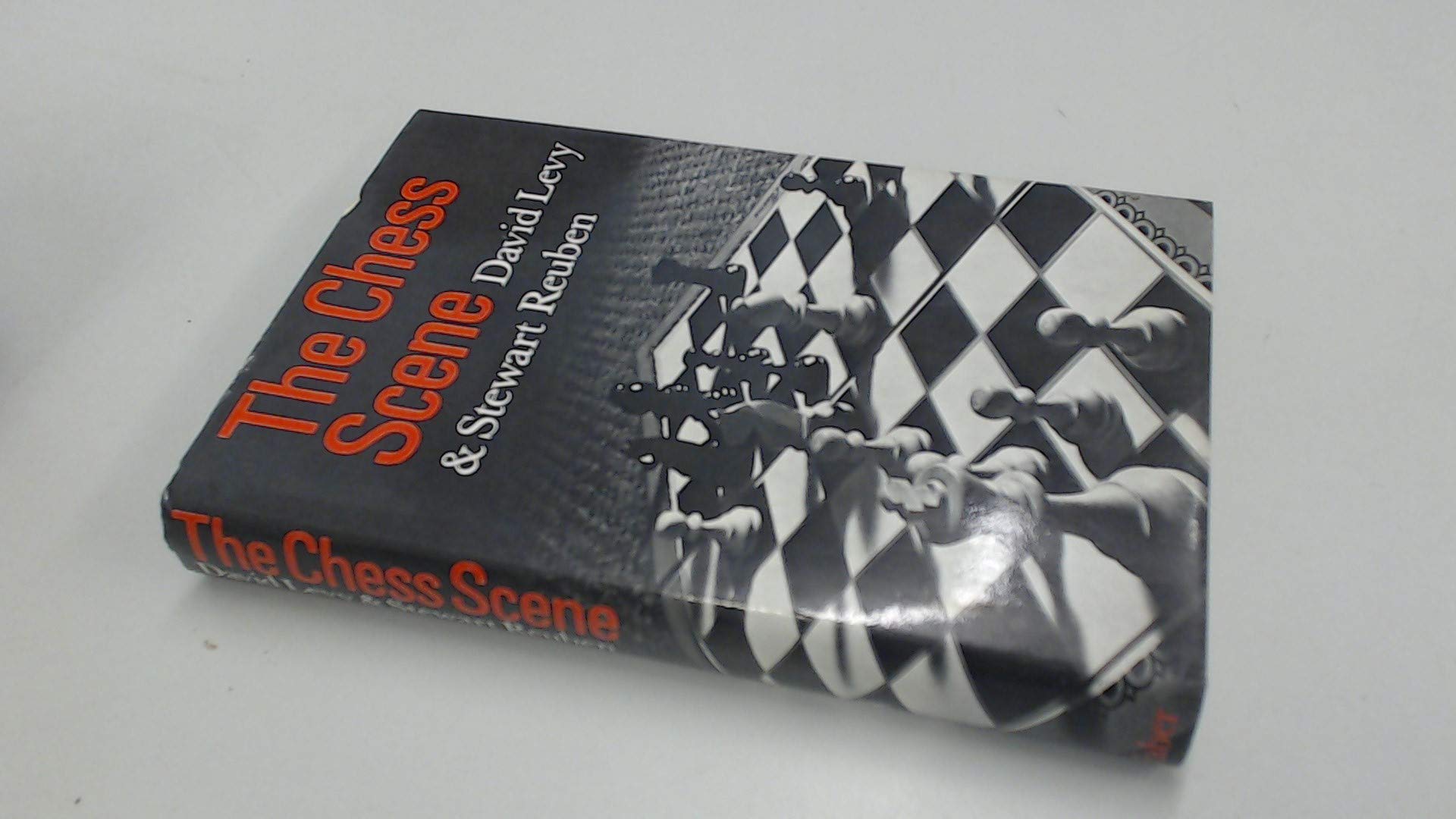
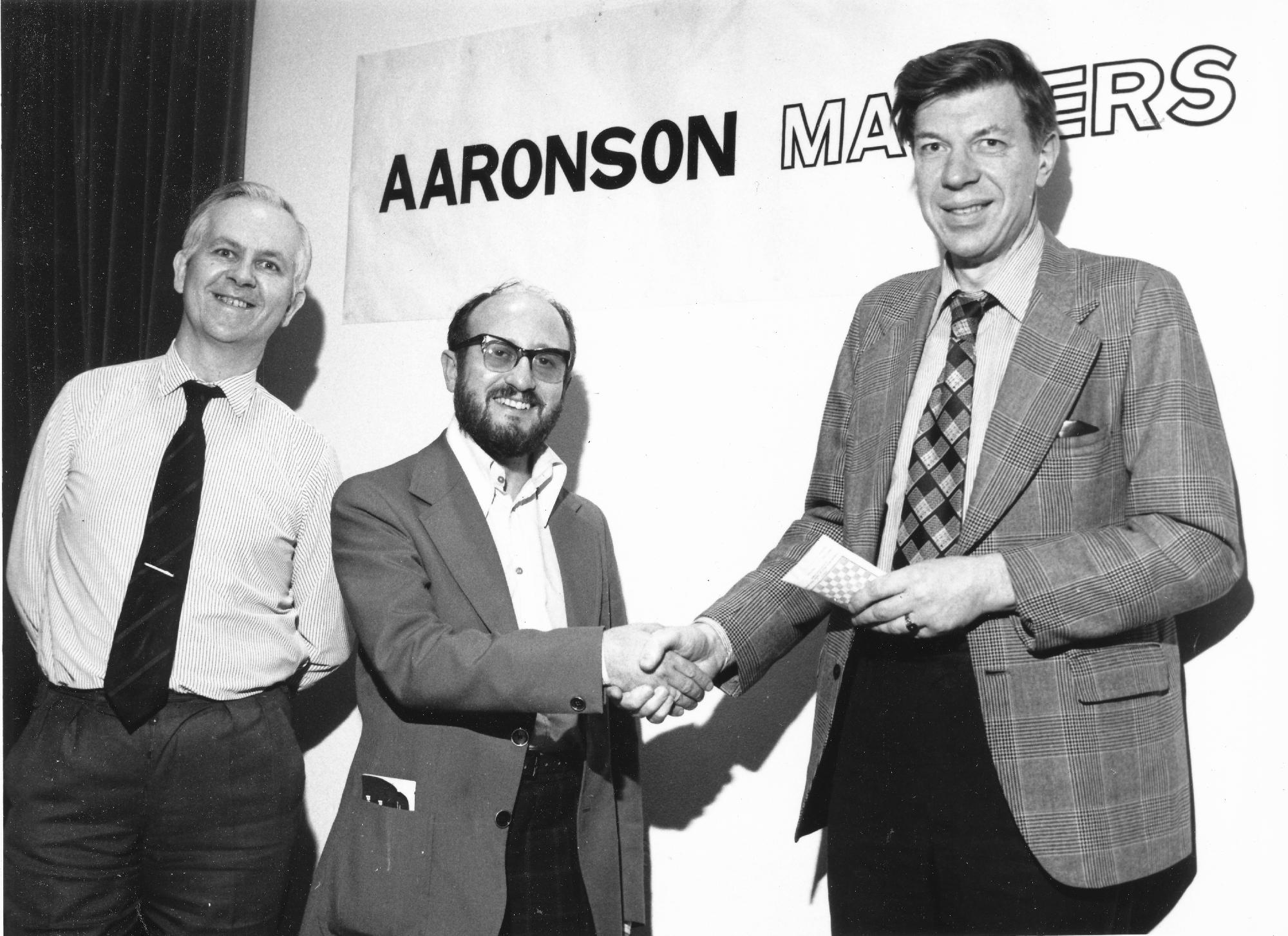
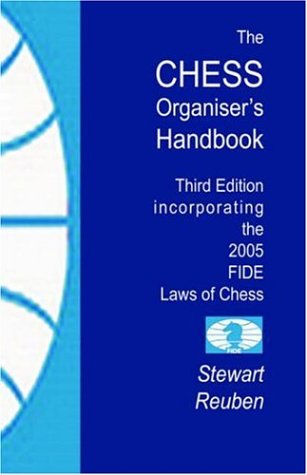
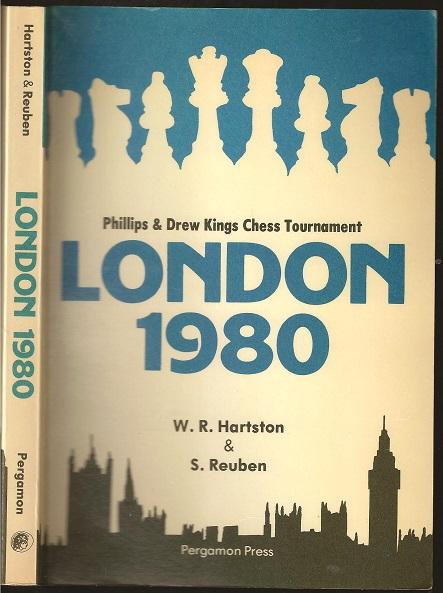
Birthday of Stewart Reuben (14-iii-1939)
Here is his Wikipedia entry
His personal catchphrase is “If only I had been consulted eariler”








Birthday of Stewart Reuben (14-iii-1939)
Here is his Wikipedia entry
His personal catchphrase is “If only I had been consulted eariler”








Birthday of Stewart Reuben (14-iii-1939)
Here is his Wikipedia entry
His personal catchphrase is “If only I had been consulted eariler”









BCN Remembers Julius du Mont (15-xii-1881 07-iv-1956)
Here is his Wikipedia entry
From British Chess Magazine, Volume LXXXVI, Number 5, 1956 we have this obituary written by DJ Morgan :
In our February issue we wrote an appreciation of one of the distinguished past editors of this magazine, R. C. Griffith. He had been followed in the chair in 1938 by our present Games’ Editor, and when he, in turn, was called in 1940 to sterner duties, he was succeeded by Julius du Mont. During the war years, and through the difficult post-war period, till 1949, he held the reins. As we wrote on another occasion, “His had been difficult years: the “B.C.M.” had survived when so much else had succumbed during the stress and strain of total war.” lt is with regret that we now record his death on April 7th, in a Hastings nursing home, at the age of seventy-four, after a protracted illness.
du Mont was born in Paris-a little-known fact which he himself once disclosed to us-on December 15th, 1881. lt was there also that he received his education. His early bent and ambitions were musical. The tradition that chess and music have a close relationship may be traced as far back, at least, as Philidor’s great eminence in both. du Mont was truly in the line of such dual personalities. He pursued his musical studies at the Frankfort-on-Main Conservatoire and at Heidelberg, and soon became established as a concert pianist.’ Later he achieved great success as a music teacher, and among his pupils was the well-known concert pianist, Edna lles. The French and German background also explains his facility as a linguist.
He came to England as a young man and brought with him a considerable talent for chess. Settling in London, he rapidly improved as a player, and successes followed. At the Kentish Congress, Tunbridge Wells, 1912, he came equal second and third. He was Champion of the strong Hampstead Club for two years, and Middlesex Champion in 1913 and 1915. He quickly mastered our language and showed this during the First World War by writing a manual on the Lewis gun. After the war, music kept its place in his life, but more and more chess became his main activity. He forsook playing and turned to journalism and authorship, and his output of books is evidence of his gifts and industry. Titles come readily to mind: Chess Openings lllustrated, Centre Counter Defence (1919) and Centre and Danish Gambit (1920); The Elements of Chess (1925) ; Ihe Basis of Combination in Chess (1938) ; 200 Miniature Games (1941); More Miniature Games (1953); (with Dr. Tartakower) 500 Master aomes of Chess, two volumes (1952), to which was added a third volume in 1954, 100 Master Games of Chess. He also translated Edward Lasker’s Chess Strategy, and Alekhine’s two volumes of My Best Games of Chess (the first with M. E.Goldstein).
The wealth of material ready to hand combined with a foreigner’s gift of lucid expression in “the other tongue” made his books very popular. To the great value and importance of these books, a whole generation of chess-players will readily testify.
For some years, du Mont was chess editor of The Field and of The Manchester Guardian. During the last war he organized chess championships for the Armed Services. We pay tribute to his services to the game, to his many kindnesses and friendships to its players, and, in particular, to his devotion to this magazine.-D. J. M.
D. C., who enjoyed a long friendship with our late Editor, writes to us as follows-
By the death of J. du Mont, the chess world has lost an eminent and popular personality. That this popularity was well deserved will be apparent even to those who knew him only slightly.
Essentially kind, he performed many generous acts, and having, by his own efforts, become the best-known British writer on chess, he not only filled this position with modesty and dignity, but was liberal in the help he gave to those starting on the road he had so successfully followed.
In the tournament room-where his presence was always welcome-he was invariably quiet and courteous, and although gifted with a fine wit, he never used it
unkindly. He *as an excellent companion, and players at many congresses will recall the happy times they spent in their visits to him at all hours of the evening. It is sad to think that these gatherings have now irrevocably reached their end: to quote A. E. Housman’s beautiful lines-
They come and were and ore not
And come no more anew.
But as long as a literature of chess remains, the name of Julius du Mont will not be forgotten. His many friends, however, have no need of his writings in order to keep alive their memory of him.
In Chess Secrets I learned from the Masters, Edward Lasker, Hollis and Carter, 1952 :
J. DuMont became the author of a number of interesting monographs on chess openings, and for many years he was the Editor of the British Chess Magazine. It was he who translated my own translation of Schachstrategie which I attempted in the summer of 1913. Naturally, my English was not fit to be printed. DuMont had to rewrite everything I had written, and except for his untiring labors Chess Strategy might never have been published. He gave the book a certain literary flavor, which no doubt added greatly to its popularity. It went into fourteen printings before it was replaced by Modern Chess Strategy in 1945.
DuMont was a pianist of note and I took lessons from him; however, the time I took from my chess activities to practise the piano was shamefully meagre. No wonder I have been told more than once that as a pianist I am a good chess player.”

BCN Remembers Julius du Mont (15-xii-1881 07-iv-1956)
Here is his Wikipedia entry
From British Chess Magazine, Volume LXXXVI, Number 5, 1956 we have this obituary written by DJ Morgan :
In our February issue we wrote an appreciation of one of the distinguished past editors of this magazine, R. C. Griffith. He had been followed in the chair in 1938 by our present Games’ Editor, and when he, in turn, was called in 1940 to sterner duties, he was succeeded by Julius du Mont. During the war years, and through the difficult post-war period, till 1949, he held the reins. As we wrote on another occasion, “His had been difficult years: the “B.C.M.” had survived when so much else had succumbed during the stress and strain of total war.” lt is with regret that we now record his death on April 7th, in a Hastings nursing home, at the age of seventy-four, after a protracted illness.
du Mont was born in Paris-a little-known fact which he himself once disclosed to us-on December 15th, 1881. lt was there also that he received his education. His early bent and ambitions were musical. The tradition that chess and music have a close relationship may be traced as far back, at least, as Philidor’s great eminence in both. du Mont was truly in the line of such dual personalities. He pursued his musical studies at the Frankfort-on-Main Conservatoire and at Heidelberg, and soon became established as a concert pianist.’ Later he achieved great success as a music teacher, and among his pupils was the well-known concert pianist, Edna lles. The French and German background also explains his facility as a linguist.
He came to England as a young man and brought with him a considerable talent for chess. Settling in London, he rapidly improved as a player, and successes followed. At the Kentish Congress, Tunbridge Wells, 1912, he came equal second and third. He was Champion of the strong Hampstead Club for two years, and Middlesex Champion in 1913 and 1915. He quickly mastered our language and showed this during the First World War by writing a manual on the Lewis gun. After the war, music kept its place in his life, but more and more chess became his main activity. He forsook playing and turned to journalism and authorship, and his output of books is evidence of his gifts and industry. Titles come readily to mind: Chess Openings lllustrated, Centre Counter Defence (1919) and Centre and Danish Gambit (1920); The Elements of Chess (1925) ; Ihe Basis of Combination in Chess (1938) ; 200 Miniature Games (1941); More Miniature Games (1953); (with Dr. Tartakower) 500 Master aomes of Chess, two volumes (1952), to which was added a third volume in 1954, 100 Master Games of Chess. He also translated Edward Lasker’s Chess Strategy, and Alekhine’s two volumes of My Best Games of Chess (the first with M. E.Goldstein).
The wealth of material ready to hand combined with a foreigner’s gift of lucid expression in “the other tongue” made his books very popular. To the great value and importance of these books, a whole generation of chess-players will readily testify.
For some years, du Mont was chess editor of The Field and of The Manchester Guardian. During the last war he organized chess championships for the Armed Services. We pay tribute to his services to the game, to his many kindnesses and friendships to its players, and, in particular, to his devotion to this magazine.-D. J. M.
D. C., who enjoyed a long friendship with our late Editor, writes to us as follows-
By the death of J. du Mont, the chess world has lost an eminent and popular personality. That this popularity was well deserved will be apparent even to those who knew him only slightly.
Essentially kind, he performed many generous acts, and having, by his own efforts, become the best-known British writer on chess, he not only filled this position with modesty and dignity, but was liberal in the help he gave to those starting on the road he had so successfully followed.
In the tournament room-where his presence was always welcome-he was invariably quiet and courteous, and although gifted with a fine wit, he never used it
unkindly. He *as an excellent companion, and players at many congresses will recall the happy times they spent in their visits to him at all hours of the evening. It is sad to think that these gatherings have now irrevocably reached their end: to quote A. E. Housman’s beautiful lines-
They come and were and ore not
And come no more anew.
But as long as a literature of chess remains, the name of Julius du Mont will not be forgotten. His many friends, however, have no need of his writings in order to keep alive their memory of him.
In Chess Secrets I learned from the Masters, Edward Lasker, Hollis and Carter, 1952 :
J. DuMont became the author of a number of interesting monographs on chess openings, and for many years he was the Editor of the British Chess Magazine. It was he who translated my own translation of Schachstrategie which I attempted in the summer of 1913. Naturally, my English was not fit to be printed. DuMont had to rewrite everything I had written, and except for his untiring labors Chess Strategy might never have been published. He gave the book a certain literary flavor, which no doubt added greatly to its popularity. It went into fourteen printings before it was replaced by Modern Chess Strategy in 1945.
DuMont was a pianist of note and I took lessons from him; however, the time I took from my chess activities to practise the piano was shamefully meagre. No wonder I have been told more than once that as a pianist I am a good chess player.”

BCN Remembers Julius du Mont (15-xii-1881 07-iv-1956)
Here is his Wikipedia entry
From British Chess Magazine, Volume LXXXVI, Number 5, 1956 we have this obituary written by DJ Morgan :
In our February issue we wrote an appreciation of one of the distinguished past editors of this magazine, R. C. Griffith. He had been followed in the chair in 1938 by our present Games’ Editor, and when he, in turn, was called in 1940 to sterner duties, he was succeeded by Julius du Mont. During the war years, and through the difficult post-war period, till 1949, he held the reins. As we wrote on another occasion, “His had been difficult years: the “B.C.M.” had survived when so much else had succumbed during the stress and strain of total war.” lt is with regret that we now record his death on April 7th, in a Hastings nursing home, at the age of seventy-four, after a protracted illness.
du Mont was born in Paris-a little-known fact which he himself once disclosed to us-on December 15th, 1881. lt was there also that he received his education. His early bent and ambitions were musical. The tradition that chess and music have a close relationship may be traced as far back, at least, as Philidor’s great eminence in both. du Mont was truly in the line of such dual personalities. He pursued his musical studies at the Frankfort-on-Main Conservatoire and at Heidelberg, and soon became established as a concert pianist.’ Later he achieved great success as a music teacher, and among his pupils was the well-known concert pianist, Edna lles. The French and German background also explains his facility as a linguist.
He came to England as a young man and brought with him a considerable talent for chess. Settling in London, he rapidly improved as a player, and successes followed. At the Kentish Congress, Tunbridge Wells, 1912, he came equal second and third. He was Champion of the strong Hampstead Club for two years, and Middlesex Champion in 1913 and 1915. He quickly mastered our language and showed this during the First World War by writing a manual on the Lewis gun. After the war, music kept its place in his life, but more and more chess became his main activity. He forsook playing and turned to journalism and authorship, and his output of books is evidence of his gifts and industry. Titles come readily to mind: Chess Openings lllustrated, Centre Counter Defence (1919) and Centre and Danish Gambit (1920); The Elements of Chess (1925) ; Ihe Basis of Combination in Chess (1938) ; 200 Miniature Games (1941); More Miniature Games (1953); (with Dr. Tartakower) 500 Master aomes of Chess, two volumes (1952), to which was added a third volume in 1954, 100 Master Games of Chess. He also translated Edward Lasker’s Chess Strategy, and Alekhine’s two volumes of My Best Games of Chess (the first with M. E.Goldstein).
The wealth of material ready to hand combined with a foreigner’s gift of lucid expression in “the other tongue” made his books very popular. To the great value and importance of these books, a whole generation of chess-players will readily testify.
For some years, du Mont was chess editor of The Field and of The Manchester Guardian. During the last war he organized chess championships for the Armed Services. We pay tribute to his services to the game, to his many kindnesses and friendships to its players, and, in particular, to his devotion to this magazine.-D. J. M.
D. C., who enjoyed a long friendship with our late Editor, writes to us as follows-
By the death of J. du Mont, the chess world has lost an eminent and popular personality. That this popularity was well deserved will be apparent even to those who knew him only slightly.
Essentially kind, he performed many generous acts, and having, by his own efforts, become the best-known British writer on chess, he not only filled this position with modesty and dignity, but was liberal in the help he gave to those starting on the road he had so successfully followed.
In the tournament room-where his presence was always welcome-he was invariably quiet and courteous, and although gifted with a fine wit, he never used it
unkindly. He *as an excellent companion, and players at many congresses will recall the happy times they spent in their visits to him at all hours of the evening. It is sad to think that these gatherings have now irrevocably reached their end: to quote A. E. Housman’s beautiful lines-
They come and were and ore not
And come no more anew.
But as long as a literature of chess remains, the name of Julius du Mont will not be forgotten. His many friends, however, have no need of his writings in order to keep alive their memory of him.
In Chess Secrets I learned from the Masters, Edward Lasker, Hollis and Carter, 1952 :
J. DuMont became the author of a number of interesting monographs on chess openings, and for many years he was the Editor of the British Chess Magazine. It was he who translated my own translation of Schachstrategie which I attempted in the summer of 1913. Naturally, my English was not fit to be printed. DuMont had to rewrite everything I had written, and except for his untiring labors Chess Strategy might never have been published. He gave the book a certain literary flavor, which no doubt added greatly to its popularity. It went into fourteen printings before it was replaced by Modern Chess Strategy in 1945.
DuMont was a pianist of note and I took lessons from him; however, the time I took from my chess activities to practise the piano was shamefully meagre. No wonder I have been told more than once that as a pianist I am a good chess player.”

BCN Remembers Julius du Mont (15-xii-1881 07-iv-1956)
Here is his Wikipedia entry
From British Chess Magazine, Volume LXXXVI, Number 5, 1956 we have this obituary written by DJ Morgan :
In our February issue we wrote an appreciation of one of the distinguished past editors of this magazine, R. C. Griffith. He had been followed in the chair in 1938 by our present Games’ Editor, and when he, in turn, was called in 1940 to sterner duties, he was succeeded by Julius du Mont. During the war years, and through the difficult post-war period, till 1949, he held the reins. As we wrote on another occasion, “His had been difficult years: the “B.C.M.” had survived when so much else had succumbed during the stress and strain of total war.” lt is with regret that we now record his death on April 7th, in a Hastings nursing home, at the age of seventy-four, after a protracted illness.
du Mont was born in Paris-a little-known fact which he himself once disclosed to us-on December 15th, 1881. lt was there also that he received his education. His early bent and ambitions were musical. The tradition that chess and music have a close relationship may be traced as far back, at least, as Philidor’s great eminence in both. du Mont was truly in the line of such dual personalities. He pursued his musical studies at the Frankfort-on-Main Conservatoire and at Heidelberg, and soon became established as a concert pianist.’ Later he achieved great success as a music teacher, and among his pupils was the well-known concert pianist, Edna lles. The French and German background also explains his facility as a linguist.
He came to England as a young man and brought with him a considerable talent for chess. Settling in London, he rapidly improved as a player, and successes followed. At the Kentish Congress, Tunbridge Wells, 1912, he came equal second and third. He was Champion of the strong Hampstead Club for two years, and Middlesex Champion in 1913 and 1915. He quickly mastered our language and showed this during the First World War by writing a manual on the Lewis gun. After the war, music kept its place in his life, but more and more chess became his main activity. He forsook playing and turned to journalism and authorship, and his output of books is evidence of his gifts and industry. Titles come readily to mind: Chess Openings lllustrated, Centre Counter Defence (1919) and Centre and Danish Gambit (1920); The Elements of Chess (1925) ; Ihe Basis of Combination in Chess (1938) ; 200 Miniature Games (1941); More Miniature Games (1953); (with Dr. Tartakower) 500 Master aomes of Chess, two volumes (1952), to which was added a third volume in 1954, 100 Master Games of Chess. He also translated Edward Lasker’s Chess Strategy, and Alekhine’s two volumes of My Best Games of Chess (the first with M. E.Goldstein).
The wealth of material ready to hand combined with a foreigner’s gift of lucid expression in “the other tongue” made his books very popular. To the great value and importance of these books, a whole generation of chess-players will readily testify.
For some years, du Mont was chess editor of The Field and of The Manchester Guardian. During the last war he organized chess championships for the Armed Services. We pay tribute to his services to the game, to his many kindnesses and friendships to its players, and, in particular, to his devotion to this magazine.-D. J. M.
D. C., who enjoyed a long friendship with our late Editor, writes to us as follows-
By the death of J. du Mont, the chess world has lost an eminent and popular personality. That this popularity was well deserved will be apparent even to those who knew him only slightly.
Essentially kind, he performed many generous acts, and having, by his own efforts, become the best-known British writer on chess, he not only filled this position with modesty and dignity, but was liberal in the help he gave to those starting on the road he had so successfully followed.
In the tournament room-where his presence was always welcome-he was invariably quiet and courteous, and although gifted with a fine wit, he never used it
unkindly. He *as an excellent companion, and players at many congresses will recall the happy times they spent in their visits to him at all hours of the evening. It is sad to think that these gatherings have now irrevocably reached their end: to quote A. E. Housman’s beautiful lines-
They come and were and ore not
And come no more anew.
But as long as a literature of chess remains, the name of Julius du Mont will not be forgotten. His many friends, however, have no need of his writings in order to keep alive their memory of him.
In Chess Secrets I learned from the Masters, Edward Lasker, Hollis and Carter, 1952 :
J. DuMont became the author of a number of interesting monographs on chess openings, and for many years he was the Editor of the British Chess Magazine. It was he who translated my own translation of Schachstrategie which I attempted in the summer of 1913. Naturally, my English was not fit to be printed. DuMont had to rewrite everything I had written, and except for his untiring labors Chess Strategy might never have been published. He gave the book a certain literary flavor, which no doubt added greatly to its popularity. It went into fourteen printings before it was replaced by Modern Chess Strategy in 1945.
DuMont was a pianist of note and I took lessons from him; however, the time I took from my chess activities to practise the piano was shamefully meagre. No wonder I have been told more than once that as a pianist I am a good chess player.”
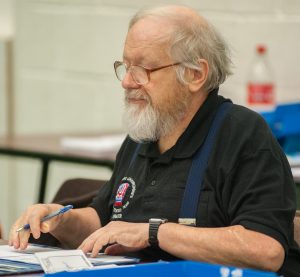
We have learnt the sad news that popular longtime Arbiter and Organizer David Welch has passed away at the age of 74 after a long illness : he was being cared for in The Royal Liverpool Hospital.
David was born on Tuesday, October 30th 1945 in Brampton, Chesterfield, Derbyshire and he played for Wallasey Chess Club for many years having initially been a member of Liverpool Chess Club.
He attended Queens’ College, Cambridge reading Natural Sciences (Chemistry) and (according to John Swain) David served Cambridge University Chess Club as Junior Treasurer, Librarian and Bulletin Editor.
In 1968 David and Peter Purland started teaching at the same Liverpool school on the same day and continued their friendship from there.
David became a BCF arbiter in the early 1970s eventually becoming the BCFs Chief Arbiter and then the ECFs Chief Arbiter and was heavily involved in many British Championships around the country.
David was curator of ECF equipment for some time and personally funded much of the BCFs and ECFs early equipment stock.
He became a FIDE International Arbiter as early as 1977 and was awarded the FIDE International Organizer title in 2010.
David shared the exact same date of birth as long time friend and fellow arbiter, Peter Purland.
Here is an excellent tribute from John Saunders
Here is a tribute from Liverpool College
in 2016 David received recognition from FIDE for his long service as an International Arbiter. David was the third English arbiter to receive the honour, following Stewart Reuben and Gerry Walsh in 2014.
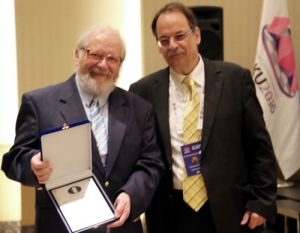
We send our condolences to all of his many family and friends.
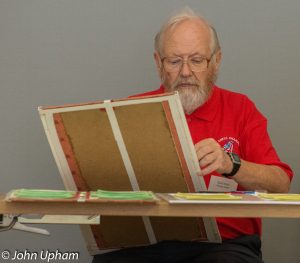
We remember Charles Edward Kemp who passed away, this day, November 9th, 1986
From The Encyclopaedia of Chess (Batsford, 1977), Harry Golombek OBE, John Rice writes:
“British problemist, specialist in fairy problems. Editor with D. Nixon of Fairy Chess Review, 1952-8. Co-author, with K. Fabel of Schach ohne Grenzen (Chess Unlimited) (1969), an anthology of T.R.Dawson’s work. International Judge (1964). ”
Using a Google translation from the Italian(!) wikipedia article we have
“Charles Edward Kemp ( Manchester , November 18, 1901 – Manchester , November 9, 1986 ) was a British chess composer .
He composed over 600 problems , many of which were of help and Fairy (with heterodox pieces ). He often collaborated with Thomas Rayner Dawson in editing the Fairy Chess Review , founded by the latter ..
Together with Karl Fabel he wrote the book Schach ohne Grenzen (“Chess Without Borders”), Walter Rau Verlag, Düsseldorf, 1969.
In the second problem reported below, the heterodox piece called Grillo (” Grasshopper ” in English, represented by an inverted Woman ) appears . Remember that this piece moves along the columns or diagonals, but only by skipping a piece (of both colors) and completing the move in the next house; if an opposing piece is found, it will be captured. In any case, even without moving, he acts on this house. The black cricket in c4, for example, can make only five moves: c4-c2, c4xe4, c4-c7, c4-f7 and c4-f1; in all the houses of arrival it does not check the white king.”
(From https://it.wikipedia.org/wiki/Charles_Edward_Kemp)
CEKs Compositions are given here.
Birthday of Christopher Cedric Lytton (Sells) (07-iv-1939)From chesscomposers.com :
“Cedric Lytton was born in South Australia and is a mathematician. He became president of the British Chess Problem Society in 2009. He is also International Judge and was during many years the sub-editor of the fairy section for The Problemist, then of its retro section.”
Here is an item from The North Norfolk News
Here is that article in full from The North Norfolk News :
“In her latest Face to Face interview, KAREN BETHELL talks to multi-talented mathematician Dr Cedric Lytton PhD, who, in spite of being born with impaired hearing, went on to list among his accomplishments playing the viola, singing, and writing top-level chess problems.
But, for Dr Lytton, who lives in Sheringham, the recent headline-hitting Hudson River plane crash in New York brought to mind perhaps his greatest achievement . . .
A difficult birth at Adelaide, South Australia, left Cedric with impaired hearing and reduced mobility in one hand.
His disability was to affect him as a boarder at Rugby School, Warwickshire, where, forced to carry around a cumbersome hearing aid in his briefcase, he was severely bullied.
However, learning to type – and discovering at age 8 that he had a talent for chess – turned out the young Cedric’s saving grace, and, in 1955, he had his first problem published in the British Chess Problem Society magazine, The Problemist.
Cedric, whose ancestors include the famous 19th century writer Sir Edward Bulwer Lytton, (who coined the phrase, “the pen is mightier than the sword.”), took up playing the bass recorder aged 18, and, as a young man, he dreamed of becoming a musician.
But, deciding life as a professional mathematician would be a safer course to take, he read maths at Sidney Sussex College, Cambridge, before going on to gain a PhD.
In 1964, he entered the scientific civil service at Farnborough as a researcher and computer programmer, following in the footsteps of his uncle, Cliff Roberts, also a researcher, who helped design Sydney Harbour bridge.
Four years later, Cedric, penned a pioneering paper on reducing airflow – and thereby shockwaves and drag – over the wings of aircraft, and his efforts led to the design of the 320 Airbus – the jet that crashed safely into the Hudson River on January 15.
Advancements in hearing aid technology meant that, by the mid-1970s, Cedric was no longer forced to wear an unwieldy device pinned to his clothes, and he realised his ambition of learning to play the viola.
After the end of an unhappy first marriage, he met up with long-term friend, Dorothy – then a supervisor of midwives at Ely – by chance on a visit to Norwich and the couple, whose son Martin is a GP in Cornwall, were married at St Andrew’s Church, Sheringham in 1982.
Since retiring 10 years ago, Cedric, who, while at Farnborough, held the local Croquet Club championship title for 8 years on the trot, has kept busy composing chess problems, playing backgammon and croquet, playing viola with a local string quartet and singing with St Andrew’s church choir. He also enjoys swimming, cycling, cooking and wine appreciation.
Cedric, 69, was delighted this year to receive a hat trick of accolades – winning Bodham Croquet Club’s annual knockout competition, taking the North Norfolk Backgammon Circle trophy, and being made president of the British Chess Problem Society.
What is the best thing about your job?
When I was working, the best thing was being left alone to get on and do a job I knew I could do well without being bothered by admin people.
And the worst?
I was lucky enough not to have a “worst” thing, but, one thing that did bother me was that every time an engineer came to repair my computer, I’d come back from my coffee break to find the mouse had been left on the wrong side!
What is the one possession you would save if your house was on fire?
My viola and my bass recorder, which I keep next to each other.
Where do you go to unwind?
Cycling – it’s a lovely feeling freewheeling down to the town.
What is your favourite Norfolk building?
The Hoste Arms at Burnham Market because they do excellent food and excellent wine.
What is the one thing you would change about yourself?
I’d perhaps be a little more tolerant of others as I do have to make an effort sometimes to keep back what I really think. If I could have normal hearing, I’d probably change that too.
What is your proudest moment?
To have found a girl who was prepared to put up with me and, at last, to have entered a happy marriage.
And your greatest achievement?
Writing my paper in 1968; It was a breakthrough paper which made a lot of difference. I’d also like to say my two beautiful grandchildren, Alexandra and William.
Have you ever done anything outrageous?
Not really. I was always a really goody goody little prig but, in the course of my long life, I’ve had a few rough edges knocked off.
Whom do you most admire?
Nelson Mandela because of what he has done for his country. He came out of 27 years in jail apparently a better man, never said a word about his captors and has continued to justify his existence ever since.
What makes you angry?
My deafness sometimes makes me difficult to understand and means that I often have to say things twice. But what is really annoying is when people ask me something and, when I give a reply, they look at Dorothy.
Favourite book, film and TV programme?
Book: The Adventures of Sherlock Holmes – The Dancing Men, film: The Prisoner of Zenda, and I do enjoy watching The Andrew Marr Show on television on a Sunday.
How would you like to be remembered?
As one who loved his fellow men.”